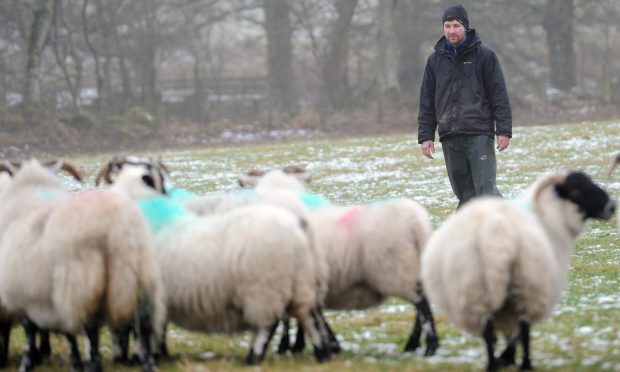UK sheep meat processing costs could be reduced if an EU proposal to ease controls on the removal of Specified Risk Material (SRM) from the carcases of animals slaughtered for human consumption is approved next month.
The European Commission is proposing a draft amendment to the controls for transmissible spongiform encephalopathies (TSE) or prion diseases, which include sheep scrapie. The parts of a sheep presently specified as SRM vary between sheep aged under 12 months and sheep aged over 12 months.
However, sheep are only identified as being older than 12 months through dentition inspections of each sheep’s mouth to check for the emergence of permanent incisors, a process described by NFU Scotland as “time-consuming and inaccurate”.
The union has written to Defra Secretary Michael Gove, calling on him to support a European Commission amendment which would permit other methods to identify the age of sheep.
Union president Andrew McCornick said: “This welcome move would give regulators the flexibility to use a method best suited to the UK industry.
“The current method of checking teeth for permanent incisor eruption is costly and inaccurate. Industry has previously explored alternative methods including using a cut-off date each year, after which animals would be regarded as being older than 12 months.”
However the proposed amendment would not change the current requirement in the UK to split carcasses of sheep over 12 months to remove the spinal cord, a measure which is regarded as one of the biggest costs to the UK sheep industry.
Mr McCornick added: “In the UK it is an offence to remove the spinal cord from older sheep other than by splitting the whole vertebral column or removing a section of the whole vertebral column including the spinal cord. Other EU states only require the removal of as much SRM as possible, while in the UK, 100% SRM removal is compulsory.
“However, that gold-plating comes at a significant additional cost to the UK sheep industry and, in our letter to Mr Gove, we have asked for the UK Government to give domestic regulators greater flexibility in this area.”
nnicolson@thecourier.co.uk









